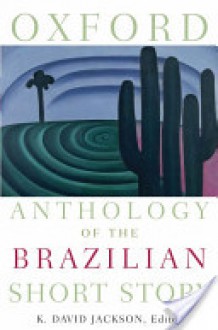The Oxford Anthology of the Brazilian Short Story contains a selection of short stories by the best-known authors in Brazilian literature from the late nineteenth century to the present. With few exceptions, these stories have appeared in English translation, although widely separated in time and...
show more
The Oxford Anthology of the Brazilian Short Story contains a selection of short stories by the best-known authors in Brazilian literature from the late nineteenth century to the present. With few exceptions, these stories have appeared in English translation, although widely separated in time and often published in obscure journals. Here they are united in a coherent edition representing Brazil's modern, vibrant literature and culture. J.M. Machado de Assis, who first perfected the genre, wrote at least sixty stories considered to be masterpieces of world literature. Ten of his stories are included here, and are accompanied by strong and diverse representations of the contemporary story in Brazil, featuring nine stories by Clarice Lispector and seven by Joao Guimaraes Rosa. The remaining 34 authors include Mario de Andrade, Graciliano Ramos, Osman Lins, Dalton Trevisan, and other major names whose stories in translation exhibit profound artistry. The anthology is divided into four major periods, "Tropical Belle-Epoque," "Modernism," "Modernism at Mid-Century," and "Contemporary Views." There is a general introduction to Brazilian literary culture and introductions to each of the four sections, with descriptions of the authors and a general bibliography on Brazil and Brazilian literature in English. It includes stories of innovation (Mario de Andrade), psychological suspense (Graciliano Ramos), satire and perversion (Dalton Trevisan), altered realities and perceptions (Murilo Rubiao), repression and sexuality (Hilda Hilst, Autran Dourado), myth (Nelida Pinon), urban life (Lygia Fagundes Telles, Rubem Fonescal), the oral tale (Jorge Amado, Rachel de Queiroz) and other overarching themes and issues of Brazilian culture. The anthology concludes with a haunting story set in the opera theater in Manaus by one of Brazil's most recently successful writers, Milton Hatoum.
show less

